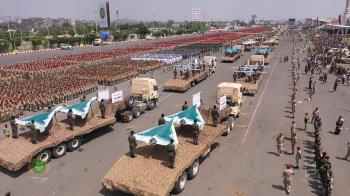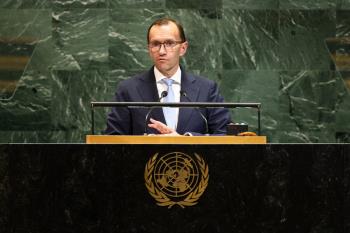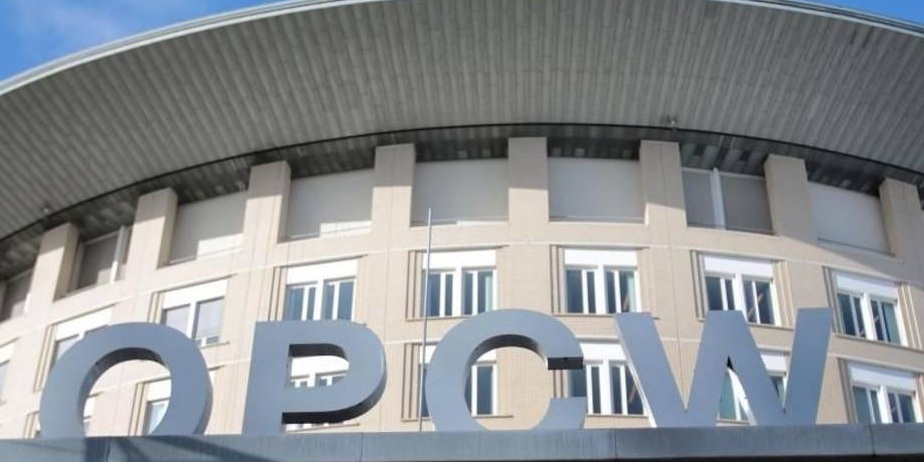Alwaght- The world’s leading chemical weapons watchdog, Organization for Prohibition of Chemical Weapons (OPCW), is grappling with a politicization case these days.
The OPCW has been addressing the Syrian situation over the past years of the anti-terror war. It was several times referred to as an international body to see cases of chemical arms uses in the war-ravaged country. Now the non-political organization is facing a politicization case.
A set of Western countries have recently made a proposal calling for OPCW powers expansion. The proposal was first made by Britain’s envoy to the UN and won support from French and German envoys shortly after. Then the US Deputy Secretary of State John Sullivan voiced backing for the European bill, arguing that once its leverage is increased, the chemical weapons watchdog can assign the blame, including in Syria case.
But the OPCW power expansion faced opposite voices. Russia, Iran, and Syria bitterly opposed the vote on the bill. Despite opposition from the trio, under Western pressures, the members held a vote on the issue, allowing the watchdog to add to its powers, paving the way for it to do blame assigning. Russia, however, said it would not recognize the resolution.
A technical or politicized organization?
Since its foundation in 1997, OPCW has been recognized as a technical body cooperating with the UN, with its duties revolving around investigating uses of chemical weapons and their types. The inter-government organization, however, is not a part of the UN, despite its close work with the world body because the watchdog’s activity is not related to the political and legal areas which in fact fall under the duties of the United Nations Security Council.
Evading entry into political areas and remaining purely technical in addressing the use of chemical weapons caused many countries to join it and put their utmost trust in its investigations. But now Britain and the US push for widening its duties range to allow it assign the blame on a possible culprit, risking politicization of this technical and specialized body. This development is embedding a flaw in OPCW body, making its blame assigning vulnerable to political conditions’ influence as some members, especially Western powers, sway its decisions.
US surprise support
The British, French, and German envoys defended their bid as a boost of the chemical weapons watchdog. To everybody’s surprise, the US envoy came to support their argument, running counter to the Trump administration’s fixed policy of antipathy to the international organizations and treaties.
Trump cut funding to the UN, announced pulling the US out of UN Human Rights council, withdrew North America Free Trade Agreement (NAFTA) and Paris Climate deal, as well as multilateral nuclear deal with Iran . These measures took place in the first year of his presidency, signaling that Trump is not interested in the international organizations. However, his administration enthusiastically backed the European agenda of authorizing the OPCW to determine those behind the chemical attacks.
US green light to the London-proposed plan gives rise to the notion that Britain pressed forward with a politicized suggestion, mounting the idea that the West struggles to bring under its sway the rulings of the chemical weapons watchdog. OPCW’s assignment of blame, the White House calculates, will make it easier for Washington to hold its opponents accountable to garner support for pressures against them on the international stage.
Syrian front lines and London proposal
The Western vote is coming exactly at a time when army is liberating lands from west-backed militants in southern Syria. An alliance of the Western and some regional Arab regimes has gone to great lengths over the past seven years to overthrow President Bashar al-Assad. Now the West seeks to prepare the ground for direct military intervention in Syria to shift the equation of war to its advantage. The move comes as part of broader pro-interests Western activism in West Asia region.
The changes in OPCW rules, some analysts believe, send a message of support to the terrorist groups operating in Syria, encouraging them to stage more false flag chemical attacks give the West an alibi to intervene militarily against Damascus using the green light of a politicized OPCW.
Syria chemical attacks have been a top case under investigation of the OPCW since 2013, the year the militants for the first time made allegations of Syria government chemical weapons use. The Syrian government categorically denied use of poisonous gas and allowed the OPCW investigators to freely probe claimed attack sites.
The West so far failed to prove Damascus as the culprit of the alleged chemical attacks. Now the Western sides are making new efforts to broaden the watchdog’s leverages to enable it to assign the blame on President Assad government.
Some sides are concerned that the move will discredit the OPCW as its technical purity is at stake, something happened to other international organizations in the past as they were politicized by the West. Russia and Syria several times asked for OPCW investigation of terrorist-conducted chemical attacks but the Western sides rejected the demand. Now a politicized OPCW will help the Western actors pursue their agenda in the Syrian conflict developments.



























